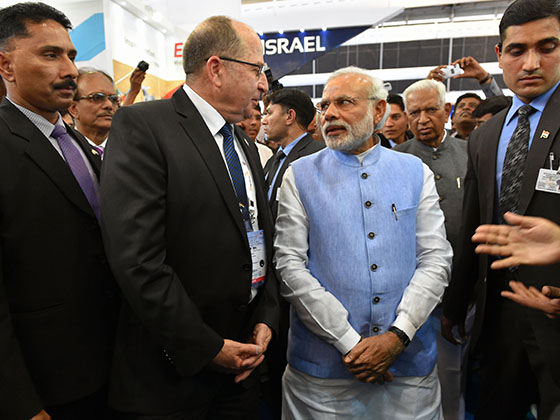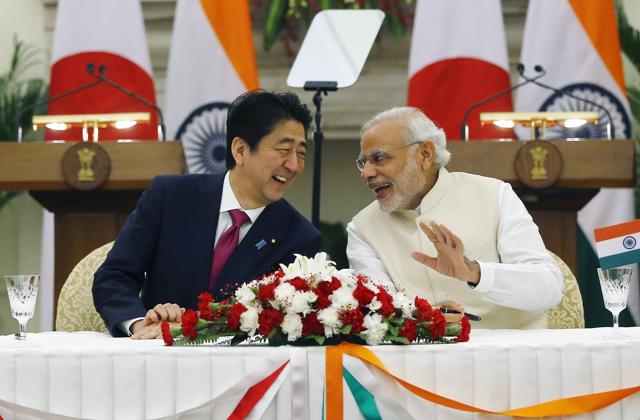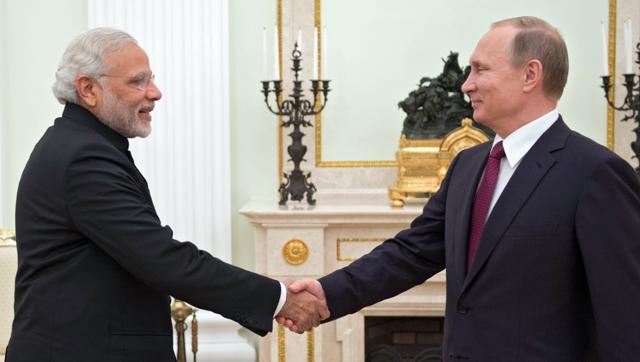In a world filled with challenges and compzeting interests, it is crucial for countries to establish strong alliances and friendships. When it comes to India, a nation with a particularly complex security outlook, the choice of reliable partners becomes even more critical. While countries like the United States, the United Kingdom, France, and Germany have maintained excellent relations with India, it is worth exploring the top three friends that India can truly rely on in today’s world. Japan and Russia emerge as the leading contenders, while Israel and the United States vie for the third spot, albeit with their own distinct agendas that may not always align with India’s interests.
Table of Content
If you were to prepare a pithy list of India’s top three friends in the world today, it is unlikely that you would name the United States, or the United Kingdom or France or even Germany – though all are having excellent relations with India right now. If you ask me I would stop at two; just two! Japan and Russia, in that order. For the third spot there may be a contest between Israel and the US, though both have their own well determined agendas which do not gel with India’s scheme of things – Palestine, Syria and Iran as far as Israel is concerned and a whole lot of issues, not just China and Pakistan, when it comes to the US.
The US may ostensibly win the race for the number three slot in my list of India’s three best foreign policy partners for the simple reason that it is the sole superpower of the world and this status of Washington is unlikely to be challenged for the next couple of decades at least. But then partnering with the US is like running an egg-in-spoon race. The race itself is full of edge-of-the-seat excitements and the outcome is always tentative.
Moreover, with the US there is always another risk. You never know when you are an esteemed partner and when you become a liability. The US-Pakistan relations are an important reality check not just for the Indians but for anyone who wishes to get into the so-called good books of the Americans. The Americans are known to be fast in finding new friends when it suits their national interest and faster in dumping them for the same reasons. Like other major Western powers (read France particularly), the Americans have no qualms in arming India and Pakistan with lethal weapons simultaneously. Business is the sole mantra.

The Israelis are more sedate and steadfast as a strategic partner of India but this small, and yet militarily powerful, nation is more like a hot potato for India given the Israeli hatred to countries like Iran, Syria, Saudi Arabia and Lebanon which makes it difficult for any ruling party in India in India to handle. Japan and Russia are the only two countries with which India has no ideological or strategic differences. With either of the two India does not have any troublesome issues that contiguous neighbours usually have. India has no boundary dispute with either of them and does not have a chequered past of fighting a one-to-one war with any of the two for the simple reason that India does not share borders with either of these. And yet India is not far from Japan or Russia.
Japan: A Strategic Friend with a Transformational Impact
India – Japan relations
Over the past decade, Japan has ascended the ranks of India’s strategic partners, largely driven by concerns over China’s aggressive behavior in the region. China’s assertive diplomacy, coupled with its attempts to encircle India with a “string of pearls,” has prompted India to seek closer ties with Japan. However, Japan’s significance as India’s number one friend extends beyond political proximity. The Japanese have played a transformative role in India’s growth story, particularly in infrastructure development.

Japan’s engagement with India goes well beyond financing infrastructure projects. The Delhi Metro Rail project, which began over a decade ago with Japanese assistance, serves as a shining example of Japan’s contribution. Today, more than thirty Indian cities are following suit by emulating the Delhi Metro model. Furthermore, Japan has pledged a staggering $12 billion low-cost, long-term loan for the construction of India’s first bullet train between Mumbai and Ahmedabad. The Indo-Japanese partnership is also exploring ambitious projects such as the Chennai-Bengaluru corridor, focusing on sector-by-sector growth.
Russia: A Long-standing Strategic Partner
India – Russia relations
Russia has been a tried and tested strategic partner for India, dating back to the era before the concept of “strategic partnership” even existed. As India’s largest arms exporter, Russia has consistently prioritized India’s strategic interests and refrained from selling arms to Pakistan, despite Pakistan’s attempts to cultivate closer ties with Russia. Since the 1960s, a significant portion of India’s defense equipment, including 85% of the Indian Navy, 75% of the Indian Air Force, and over 50% of the Indian Army’s equipment, has originated from Russia.

The institutionalized mechanism of annual summits between India and Russia, initiated in 2000, further underscores the depth of their partnership. Remarkably, India finds itself in a unique position, acting as a potential bridge between Russia and Japan, two nations with historically strained relations. While Russia and Japan have already shown signs of rapprochement, India’s diplomatic prowess could play a catalytic role in further improving their ties.
United States: The Unpredictable Nature of Partnership
The U.S., driven by its national interest, has no qualms about arming both India and Pakistan simultaneously, following in the footsteps of other major Western powers. This approach underscores the importance of business for these nations, rather than unwavering loyalty to a single partner. India must remain cautious when engaging with the U.S., aware that new friends can quickly emerge or existing ones can be discarded, based on changing circumstances.
Israel: A Steadfast Strategic Partner with Complex Dynamics
Israel, a small but militarily powerful nation, has maintained a steadfast strategic partnership with India. However, India faces a delicate balancing act due to Israel’s antagonistic relationships with countries such as Iran, Syria, Saudi Arabia, and Lebanon. The intricate web of geopolitical dynamics makes it challenging for India to navigate its ties with Israel, given its own regional aspirations and commitments.
INDO PAK WAR 1971: How Russia (Soviet Union) helped India?
U.S & China secret pact
US sympathized with Pakistan, because of various reasons. Among them two reasons were that: firstly, Pakistan belonged to American led military Pact, CENTO and SEATO; secondly, US believed any victory of India will be considered as the expansion of Soviet influence ,as it India was believed to be a pro Soviet nation, even though they were non aligned. US needed help from China.This brought China in the picture. US approached China very secretly on this issue, who was more than welcoming as it believed that their relations with US could improve from this onward.
Role of Soviet Union
“The Soviet Intelligence has reported that the English operative connection has come nearer to territorial India, water led by an aircraft carrier “Eagle” [On December 10]. For helping friendly India, Soviet government has directed a group of ships under the command of contr-admiral V. Kruglyakov.” Vladimir Kruglyakov, the former (1970-1975)
Commander of the 10th Operative Battle Group (Pacific Fleet) remembers:
“I was ordered by the Chief Commander to track the British Navy’s advancement, I positioned our battleships in the Bay of Bengal and watched for the British carrier “Eagle”. But Soviet Union didn’t have enough force to resist if they encountered the British Carrier. Therefore, to support the existing Soviet fleet in the Bay of Bengal, Soviet cruisers, destroyers and nuclear submarines, equipped with anti ship missiles, were sent from Vladivostok. In reaction English Navy retreated and went South to Madagascar.
Countering US Navy
News of American carrier Enterprise and USS Tripoli’s advancement towards Indian water was recieved. V. Kruglyakov “ I had obtained the order from the commander-in-chief not to allow the advancement of the American fleet to the military bases of India” We encircled them and aimed the missiles at the ‘Enterprise’. We had blocked their way and didn’t allow them to head anywhere, neither to Karachi, nor to Chittagong or Dhaka”. The Soviet ships had small range rockets (only upto 300 KM). Therefore, to hold the opponent under the range, commanders ran risks of going as near to the enemy as possible. Americans returned and couldn’t do anything.
Countering China
Success of U.S plan largely depended on China opening a new front against India. Despite Kissinger’s goading and desperate Pakistani calls for help, the Chinese did nothing. US diplomatic documents reveal that Indira Gandhi knew the Soviets had factored in the possibility of Chinese intervention. According to a cable referring to an Indian cabinet meeting held on December 10, “If the Chinese were to become directly involved in the conflict, Indira Gandhi said, the Chinese know that the Soviet Union would act in the Sinkiang region. Soviet air support may be made available to India at that time.”
The war ended with the surrender of Pakistani army as they missed American help due to quick Russians who blocked both America and China from preventing India to advance. Between 90,000 and 93,000 members of the Pakistan Armed Forces including paramilitary personnel were taken as Prisoners of War by the Indian Army. Russia’s power play prevented a joint British-American attack on India. Russia to this day is one of the major defense equipment supplier to India. Russia & India remains strategic partners.
Role of Israel
Israel helped India in 1971 war, Israel secretly provided arms to India in 1971. R&AW’s ex chief R.N.Kao reveled that Israel helped India during 1971 war. Special Arms from Tel Aviv were supplied to Mukti Bahani and Israel indeed helped India in 1971 war. During 1971 ,Pakistan’s Foreign Minister visited North Korea which was threat to India.
Israel had a fear that Pakistani Army officers are training Libyans and Iranians in handling Korean and Chinese Weapons. India’s ambassador to France DN Chatterjee began the process to get Israeli arms with a note to the external affairs ministry on July 6, 1971, saying assistance from Israel for “propaganda, finance and even procurement of armament and oil” would be “invaluable”. Gandhi immediately accepted the proposal and through the country’s external intelligence agency R&AW began the process to get the arms through the tiny principality of Liechtenstein.
India didn’t have diplomatic ties with Israel at that time, Israel was in middle of an arms shortage but prime minister Golda Meir stepped in to divert arms meant for Iran to India. She sent a note addressed to Indira Gandhi in Hebrew through Shlomo Zabuldowicz, the director of the firm handling the secret transfers, with a request for diplomatic ties in return for arms.
In navigating the complex world of international relations, India must carefully cultivate its strategic friendships. While countries like the United States and Israel offer certain advantages, Japan and Russia emerge as India’s most reliable friends, each bringing unique benefits and minimal strategic and ideological differences. Japan’s role in transforming India’s infrastructure landscape and Russia’s longstanding strategic partnership have established them as top allies. India’s diplomatic acumen can further strengthen these relationships and potentially foster improved ties between Japan and Russia, enhancing regional stability.
As India continues to assert its influence on the global stage, it must remain cautious of the ever-evolving dynamics of international relations. By nurturing strong alliances and pursuing partnerships based on shared values and mutual interests, India can navigate the challenges posed by an unpredictable world and secure its position as a prominent player in global affairs.
References:
- “India and Japan relations” – Embassy of India, Tokyo.
- “India-Russia Relations” – Embassy of India, Moscow.
- “India’s top 3 friends in the world are Japan, Russia, and US” – The Financial Express.
- “1971 Indo-Pak War: How the Soviet Union helped India” – India Today.
- “How Israel secretly helped India in 1971 Bangladesh Liberation War” – India Today.
Younger indian generations should read this to understand who are our real friends and Russia always stood by India and timely tested & proven friend.
If you like this post, then please, share it in different social media. Help our site to spread out!!
